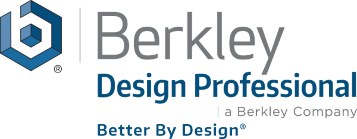By Lisa MacKay, Assistant Vice President, Senior Claims Examiner, Berkley Alliance Managers, a Berkley Company
Liz Molina, Assistant Vice President, Senior Claims Examiner, Berkley Alliance Managers, a Berkley Company
June 21, 2024

As claims handlers, we always look for reasonable opportunities to resolve our claims. Mediation is the most common and beneficial pathway to claims resolution. Most professional liability policies offer incentives for insureds to attend mediation and resolve their disputes. Moreover, mediation provides a means to foster and preserve relationships with insured clients. There are occasions when we can socialize, share some ideas, interact and even find common ground with other insurance professionals as well as attorneys. This ability to connect with others and with the help of a neutral third party or mediator, gives us some control over the outcome of a case and avoids the unknown risk of a decision being rendered by a judge or jury.
With social inflation on the rise and sometimes resulting in extreme jury awards, resolution through mediation is the best way to take the uncertainty and risk of the outcome out of the hands of the judge or jury. The interactive process promotes a free flow of information and allows parties to identify and discuss the strengths and weaknesses of the case in a confidential setting. The mediator assists the parties in exploring legal issues and in evaluating the recoverability of certain damage items that may not have been discussed. An effective mediator also helps to narrow the gap between alleged damages, which are sometimes overstated, and what would ultimately be recoverable to move the parties closer together and to assist them with becoming better informed to evaluate risk and exposure.
For many people, whether the case involves a personal or professional matter, having a dispute that rises to the level of a claim whether litigated or not, is a new and unfamiliar experience, and often “uncharted territory.” The claim and litigation process can be intimidating, uncomfortable, frustrating and disappointing. This experience is also true in mediation. For example in negotiations, unreasonable opening offers can lead to frustration and irritation and cause parties to become more entrenched and unwilling to concede their position. It is not a natural process to most and there is a lot of gamesmanship and strategy on all sides. We often have preliminary conversations with our insured clients and counsel to set the tone and keep an open mind as we prepare ourselves for unrealistic opening demands. The valuation of a case or position becomes more realistic after discussions or back-and-forth offers are made in mediation. The process itself may take more than one session, especially if the parties are entrenched, to allow them time to process the information and better evaluate risk and exposure.
Does the format matter?
As a result of COVID, parties to a dispute and litigants across the country have shifted to a greater acceptance of a “virtual mediation session” through a video platform. This allows parties to participate without having to travel to the session. While some people may not feel that this format is optimal, it provides a more efficient and cost-effective negotiation process. Scheduling is easier (especially with multi-party cases), travel costs are minimized and time away from the office is minimized. Parties can meet “face to face” through video with each other and the mediator. With the breakout room feature, parties can participate in separate caucuses, and the mediator can “pop in” and speak to a number of parties and representatives. There are times when parties are no longer on amenable terms and a virtual platform helps the individuals feel at ease knowing they won’t run into each other.
In some cases, however, virtual mediations are not as successful as an in-person session. These disputes typically involve cases with an emotional plaintiff who may be looking for more than financial recovery. Sometimes it takes a very narrow table, no wider than two feet, face-to-face with the plaintiffs and their counsel to get to a mutually agreeable resolution. If the underlying dispute is more personal and emotional on both sides, the resolution may require some form of non-monetary component to the agreement, one which could not be achieved without an in-person meeting, such as an apology. As claims handlers, we rely on our people skills to resolve our claims, which many times takes creative or tailored solutions that may be more unconventional. We recognize that disputes can be emotional regardless of what they are.
Fosters relationships
Mediation sessions, whether in person or virtual, typically take a day, but oftentimes require multiple sessions to reach a resolution. While the mediator is talking to the different parties in different break-out rooms, there is typically lengthy periods of “down time” or periods of time when only the insurance professional, insured representatives and attorney are present. During these lengthy time periods, we take opportunities to learn a lot about our business partners. We learn about what makes our insured customers tick, what keeps them up at night, how their business operates and current trends. On a more personal note, we learn about their families, travels, hobbies and share stories. At the end of the day, we gain an appreciation for the mediation and claims process.
Mediation provides an opportunity to help control the outcome of a case. It allows our insured clients to experience the process and realize that while their expectations are not always met, they can appreciate that the process has far more benefit than the alternatives. We often receive compliments and gratitude from our insured clients. This serves as a testament that the time was well spent at mediation and that we strengthened our business relationships and built trust and confidence with our insureds and business partners.
About the Author

Lisa MacKay is assistant vice president, senior claims examiner at Berkley Alliance Managers, a Berkley Company. She has more than 20 years of experience as a claims professional dedicated to architects and engineers professional liability. Prior to that, Lisa worked as an attorney for 10 years in government and private practice. She earned her Bachelor of Arts degree in Economics from the University of Illinois Urbana-Champaign, and her Juris Doctorate from Whittier College School of Law, Whittier California. Lisa is based in Chicago. Contact Lisa at [email protected].

Liz Molina is assistant vice president, senior claims examiner at Berkley Alliance Managers, a Berkley Company. She has more than 30 years of experience as a claims professional with A&E professional liability insurance claims. She joined Berkley Alliance Managers in 2017. Her claims experience has taken her to almost every state in the U.S. and she holds an adjuster’s license in all state’s requiring them. Much of her knowledge and skills come from true hands-on experiences in the insurance industry. Liz is based in Northern California. Contact Liz at [email protected].
© 2024 Berkley Design Professional, a Berkley Company.
All Rights Reserved

